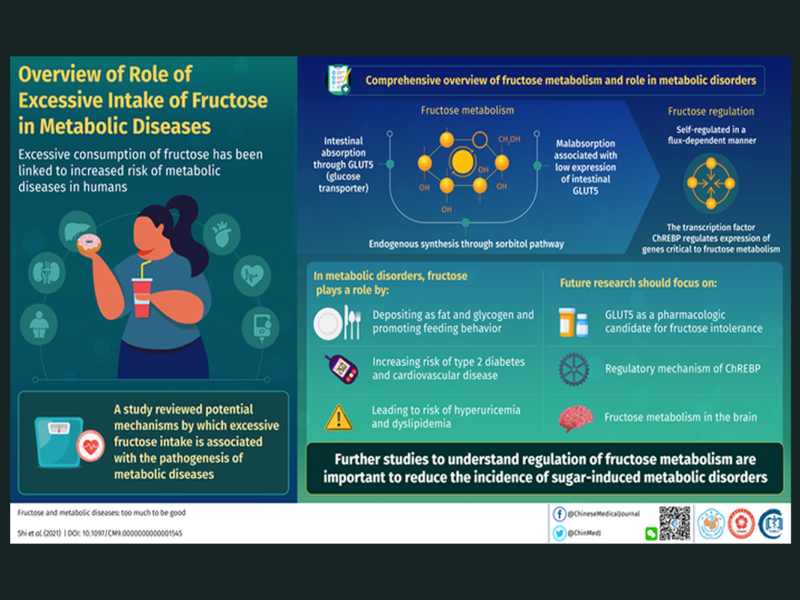The dependence on “fast food” and other beverages is increasing in today’s fast-paced environment. These foods are low in fiber and essential nutrients and have high amounts of added sugar which includes fructose. These changes in diet and lifestyle have been associated with an increase in metabolic disorders such as diabetes, heart disease, and fatty liver disease. It is a problem with sugar because the more sugar you consume, the more sugar you crave. This leads to unhealthy sugar cravings and poor health.
What exactly is sugar added to food? Why is it so bad for you? First, let’s understand what it is. Refined sugar or “sucrose” is made up of two simple sugars, “glucose”, and “fructose”. They are chemically identical but are processed in different ways. Although excessive fructose intake has been shown to be harmful (even when it is within “normal” levels), the underlying mechanisms of its metabolism as well as their potential role in metabolic diseases are not yet fully understood.
Chinese researchers sought to understand how dietary fructose is metabolized in the body. This was done in a comprehensive review published on Chinese Medical Journal. Prof. Weiping J. Zhang is the corresponding author of the study. She explains the clinical implications. These findings will help to develop new strategies for diagnosing, preventing, and treating metabolic diseases.
Researchers begin by explaining that most fructose we consume is absorbed into the cells of our intestine. This is done by the intestinal cells through protein transporters called GLUT5 or GLUT2. GLUT5 shows the highest affinity to fructose. These receptors respond to fructose levels and, thus, GLUT5 dysfunction or fructose malabsorption can occur. Studies in mice have shown that GLUT5 deficiency can cause intestinal problems, such as gas accumulation and fluid accumulation. GLUT5 may be a candidate drug for certain fructose induced diseases.
When fructose is introduced to the bloodstream, it is kept under control by the liver and kidney, which are both vital metabolic hubs within our bodies. The liver and kidney are responsible for directing fructose to glucose production through a process called gluconeogenesis. However, this reaction requires that a molecule called ATP (the main energy source in cells) is broken down. A high intake could lead to ATP loss in cells. This activates a pathway involved in uric- acid metabolism. It can cause a buildup of uric- acid in the bloodstream and joints. This can increase the chance of developing “gout” which is a condition that causes severe pain in the joints. Further, fructose intake can cause an increase in cholesterol and abdominal fat which can lead to more serious heart conditions.
Next, the study focuses on gene-level modifications that regulate fructose metabolic processes. A protein called “ChREBP”, is crucial in controlling genes that regulate the sugar metabolism. Animal studies in ChREBP deficient mice have shown that ChREBP plays a crucial role in fructose absorption as well as clearance. It is still unclear what molecular mechanisms regulate ChREBP activation when fructose stimulation occurs. Professor Zhang says, “A better understanding of the biochemical regulatory mechanisms of the ChREBP pathway will definitely give new clues into how fructose metabolism is controlled and the metabolic effects of this process.” Future research in this field will help us achieve better cardiometabolic and clinical health.
These findings are a clear indication of how an increase fructose can cause an imbalance in the body’s metabolic pathways, which in turn can lead to various diseases.
Indeed, our overall health is directly affected by what we eat.

